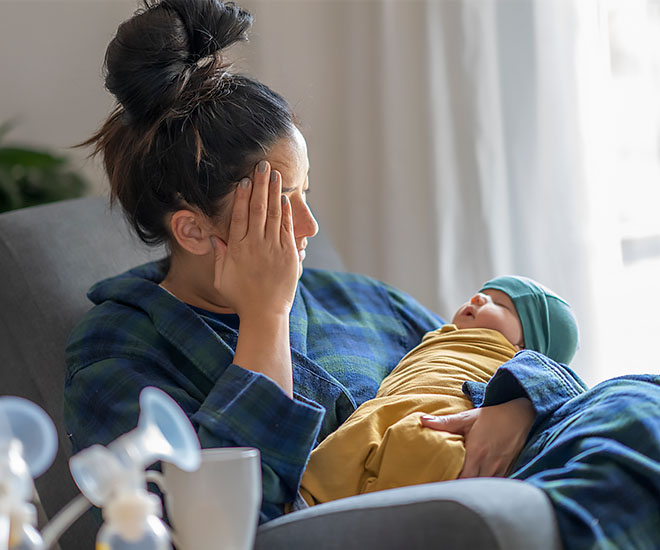Disclaimer: This post is meant to shed light on Postpartum depression and anxiety but may be triggering to some. If you are struggling with PPD/PPA/PPP you can find support at Postpartum Support International and Maternal Mental Health Leadership Alliance
The Sad Truth About Postpartum Depression & Anxiety: How Lindsay Clancy’s Story Could Have Happened To Anyone
I have not been able to get Lindsay Clancy or her family off my heart and mind since I read about their story several days ago. I have never met Lindsay or her family, and I know nothing about them other than what I have read on various online platforms. But their story has weighed on my heart as if I’d known them personally. It seems strange, but I think it impacted me so much because of the realization that it could easily have been me, or you, or any one of the hundreds of thousands of women who suffer with postpartum depression and/or anxiety (and in rare cases postpartum psychosis).
According to a statement made by Lindsay’s husband, she was a loving wife and mother, and his greatest blessing. “The very fibers of her soul are loving,” he wrote and asked for forgiveness for his wife. By all accounts, Lindsay has always been a loving, caring, and genuine person. She was a labor and delivery nurse, wife, and mother of 3, and was suffering with postpartum depression. Depression that was so significant, she was in an intensive outpatient program at the time of the tragedy. And despite being in intensive therapy, Lindsay allegedly took the lives of her three children and then attempted to take her own life on January 25th.
I cannot even begin to fathom her feelings in that moment, or in the moments leading up to the tragedy and immediately following. All I can say is that I have been in the throes of severe postpartum anxiety. I have believed … truly believed that chemical compounds in our personal hygiene products were poisoning my children. I have refused to give my then 3-year-old M&Ms because “the red die is poison and will give her cancer.” And when it was REALLY bad, my husband came home to find me feverishly throwing out ALL of our cosmetics, personal hygiene products, and cleaning supplies because they were all “toxic.” I spent MONTHS making all my own cleaning supplies, hygiene products, and laundry detergent. Truth be told, in that state you couldn’t convince me I was wrong. I would likely have physically harmed anyone who attempted to give my child an M&M or use a soap / lotion that I hadn’t approved. I was that unhinged.
Looking back, I realize my thought process was irrational, but in that state (which lasted years) I thought I was totally sane and doing what was best/safest for my children. Now imagine if my irrational thought was that a demon-possessed my child, or that someone was trying to harm/kidnap us. What if I believed I needed to “save” my children by sending them to heaven? It sounds crazy when you’re rational, but when struggling with postpartum depression / anxiety / psychosis, it doesn’t sound so nuts. But society tells us we are supposed to love our babies the second they come earthside, so those of us who have experienced PPD/PPA feel shame that we have these irrational thoughts.
We feel embarrassed, lost, confused, alone, and ashamed. So, we tell very few (if any) people what we are really thinking and feeling. And subsequently, we do not get the care we need. My personal experience with PPA lasted 3 LONG years after my second was born. By the time I finally got the help I had lost a significant amount of weight, my hair was falling out, I had horrible insomnia, was having heart palpitations, and was living in constant fear that everything was going to poison my children. It took a full year of working with my therapist before I could even bring myself to share my son’s birth story and discuss the feelings that came after that. Prior to that, I felt sick even thinking of my son’s birth.
In retrospect, it makes me angry and heartbroken. For no reason other than the fact that this level of suffering is unacceptable. As a society, we need to stop shaming mental illness. In America specifically, we need to better support postpartum women with improved maternity leave in every job setting, improved work-life balance, and better access to postpartum care. The stand-alone 6-week checkup does not even begin to qualify as appropriate healthcare for a postpartum woman. What about the women who begin experiencing PPD/PPA before the 6 weeks, or for those cases where it comes on after the 6-week checkup? What about women who have experienced emotionally or physically traumatic births? How can we possibly address all that with one, single visit at 6 weeks postpartum? At the very least, we need weekly telehealth visits immediately following delivery.
We must do better. Lindsay and her family deserved better. I deserved better. Every single woman who has suffered with PPD/PPA/PPP deserves better, as do their families. And as a healthcare provider, specializing in women’s health …. I plan to continue advocating for better. But as a start, we can be better about checking in on new moms. We can make them meals, help with laundry, and take their older kids for play dates to give them a break. We can offer to sit with the baby so they can rest/nap/go run an errand if they want to. We can share our own struggles, so they don’t feel alone in theirs. And we can listen when they trust us enough to share theirs.

















